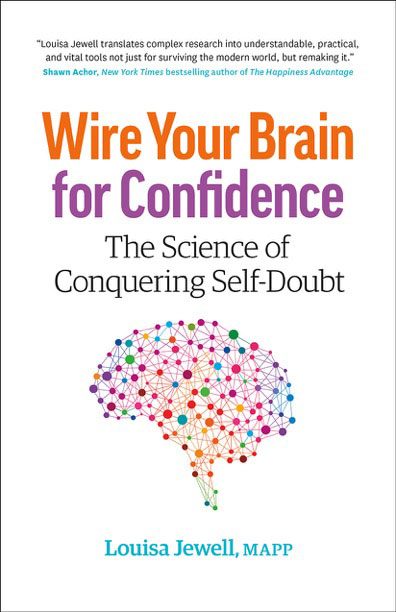Do You Want To Succeed? Don’t Focus On Your Self-Esteem.
It’s human to be insecure. So why is self confidence so necessary? Find out how to handle your self-worth in an emotionally healthy way.

Not feeling confident? You’re normal.
For decades, psychologists thought that, to be successful, we needed high self-esteem. Most researchers define self-esteem as a global evaluation of the self and one’s self-worth; it is a judgment about yourself at any given time—Do I feel I am a good person, or do I feel I am a bad person? Do I feel good about myself, or do I feel bad about myself?
Psychologists will not argue that having a healthy level of self-esteem is a good thing. Research shows that low levels of self-esteem are correlated with depression and anxiety. Thus, self-esteem is important for our overall psychological well-being. But there is very little research to support the idea that high self-esteem drives performance. In fact, pursuing high self-esteem can actually be detrimental to your performance.
When I started to have children, the self-esteem movement had just begun. Educators everywhere believed that building a child’s self-esteem was the most important contributing factor to success. So they started to be careful about hurting a child’s feelings by failing them in school or criticizing them. Children’s sports associations started having “festivals” instead of competitions, not keeping score and giving trophies to everyone, so that kids on the losing teams didn’t get their feelings hurt. Researchers are now discovering that the movement has done more harm than good. I could write a whole other book on this topic alone, but here I want to talk about how focusing on building self-esteem can harm your chances of success.
Dr. Jennifer Crocker at Ohio State University proposes that “the importance of self-esteem lies more in how people strive for it rather than whether it is high or low.” When people focus too much of their energy on feeling good about themselves, they spend an inordinate amount of time engaging in activities that validate their abilities and qualities; in other words, their self-esteem. Dr. Crocker refers to this as “contingent self-esteem.” If I feel good about myself because I see myself as an intelligent student, my self-esteem goes up when I get an A at school, and it goes down when I get a C. It does not necessarily go up or down if I win or lose a tennis match, because my self-esteem is not invested in my tennis skills. So, if my self-worth is highly invested in the idea that I am an intelligent student, my self-esteem is now contingent on my grades. So in future I may pursue only courses where I know I will excel, even though taking a course in a different subject might actually be better for my career. Also, if I am halfway through the course and getting a C, I may drop the course before it affects my record—it’s easier for me to tell people I quit rather than risk failing.
The short-term emotional benefits that come from boosts in self-esteem can be so appealing that we don’t engage in other, more challenging pursuits that will get us closer to reaching our goals. The pursuit of self-esteem can interfere with your learning and skill mastery, which is the only way you are going to excel at anything. If you are always trying to validate your self-worth, you are going to avoid potential failures, criticism, and negative feedback, rather than seeing them as opportunities to learn and grow.
The best way to build self-confidence is to go out and master what it is you want to accomplish. Get better and better at it. Mistakes, failures, criticism, and feedback of any kind are exactly what you need to take yourself to the next level. You have to be able to look at an accomplishment and decide that it is a learning opportunity, not something that is just going to give your image a shiny boost. Another pitfall of contingent self-esteem is feeling bad about yourself after a setback or failure, which does not help you stay motivated to try again. In fact, it will zap your positive mental energy, the energy you need to persevere.
In order for us not to make our self-esteem contingent on our successful achievements, we have to decide that our self-worth or self-esteem will not be affected by our failures or setbacks. In other words, do not take the failure personally. Feel good about yourself no matter what, and focus on how you will get better at the task. If you want to be on top of your game, you have to focus on growing and learning and forget the rest. A focus on self-esteem alone is not going to get you there.

This is an excerpt from the book Wire Your Brain for Confidence; The Science of Conquering Self-Doubt by Louisa Jewell. (Available September 21, 2017.)
Not feeling confident? Here are more stories that might interest you:
• Look More Confident, Instantly
• What We Can Learn From Ashley Graham’s Body Confidence
• Inspiring Story: Starting Your Own Business




